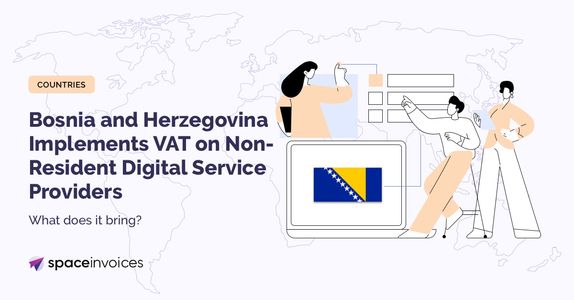Bosnia and Herzegovina Implements VAT on Non-Resident Digital Service Providers
Under the new rules, non-resident providers of digital services are required to register, collect, and remit a 17% VAT to the Indirect Taxation Authority.
In the rapidly evolving digital economy, tax regulations are adapting to ensure fair and equitable taxation across borders. A recent example of this is Bosnia and Herzegovina's new value-added tax (VAT) rules for non-resident providers of digital services. This move aligns the country with EU regulations on taxation based on the location of consumption.
Under the new rules, non-resident providers of digital services are required to register, collect, and remit a 17% VAT to the Indirect Taxation Authority. This means that businesses providing digital services to consumers in Bosnia and Herzegovina, regardless of where the business is based, are now subject to local VAT regulations.
This change reflects a global trend towards the taxation of digital services based on the location of the consumer, rather than the location of the service provider. It's a shift designed to ensure that tax revenues are distributed more equitably and that local businesses are not disadvantaged by foreign competitors who were previously not subject to VAT.
For non-resident digital service providers, this change means they will need to familiarize themselves with Bosnia and Herzegovina's VAT regulations and ensure they have systems in place to collect and remit the appropriate taxes. This includes understanding the scope of digital services subject to VAT, the process for registering with the Indirect Taxation Authority, and the procedures for collecting and remitting VAT.
At Space Invoices, we understand the complexities of navigating changes in tax regulations, particularly for businesses operating across borders. We're committed to helping businesses understand and comply with these new VAT rules.
As we move forward in the digital age, it's crucial for businesses to stay informed about changes in tax regulations and to adapt their operations accordingly. By doing so, they can ensure they remain compliant, avoid potential penalties, and continue to provide their services to consumers around the world.
Stay tuned for more updates on this and other important developments in the world of business and finance.
Additional reading:
Start issuing Invoices, free!
Signup and start issuing compliant invoices from your software in minutes.
Or contact us to get a free implementation consultation.
